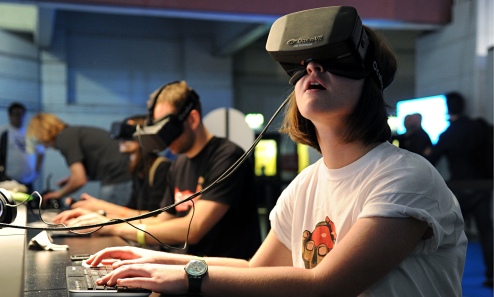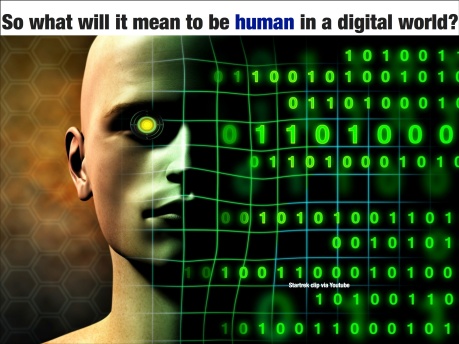For the next thirty seconds I’m going to pretend to be the host of a wildly successful game show and you will be my honored guest.*Ahem*
“Ladies and gentlemen! Welcome back to ‘would you rather?’ the best game show of 2016. I’m your host, Dan the Fantastic, and standing beside me is <insert your name here>. Will you all please greet our guest of honor?”
*Massive amounts of loud clapping ensues*
“Alright, I think that’s enough. Let’s get this started. As you know I’m going to ask you a question and you have ten seconds to answer it. During this time, the crowd will also select their answer and if you agree with them you win a brand new <insert generic car brand name here> ! Doesn’t that sound wonderful?”
*More frantic clapping*
“Without further adieu, here we go. ‘Would you rather: spend your days toiling about in a generic office setting, filing paperwork, or *pause for dramatic effect* would you like to pilot a spaceship into the heat of a battle where the fate of the known galaxy relies on your skills, and your skills alone?”
–End Game Show Section–
Now, that was a bit excessive, I’ll admit it. Yet if you stuck with me and answered that question, you probably chose the latter of the two options. Now sure, working at a desk and having a steady job is incredibly respectable, so if you chose that, you probably made the smart choice. Yet, there is a growing number of people who would pick the second choice simply because of a desire to escape mundane reality.
I recently became aware of the existence of something called the Oculus Rift. This new gizmo is placed over your eyes, like a large awkward pair of glasses, and pulls you into a pseudo-virtual world. It’s not perfect, but from my experience, the visual sensations are pretty convincing. As much as I love technology and this new advancement in general, I once again find myself hesitating slightly.
In my experience, I’ve found that there are a growing number of people who dedicate a significant portion of their lives to certain video games. They’re the people who will spend weeks living inside a game. They will spend days cultivating relationships, friendships,
and even romances in the virtual world with computer generated characters. Now, there isn’t really anything inherently wrong with this. The problem arises from a fact that I find indisputable for a person like this. At a certain point, this person is more living their virtual life than there physical life. Doing so undoubtedly throws there perspective on reality into question. So what will happen to these people when a new technology exis
ts that allows for an even more immersive experience? Trying to live in this world is hard enough. Trying to live in two… well… I don’t know if it can truly be done. When the lines between fantasy and reality become indistinguishable, what will our world look like?

This Unmodified Picture is from: https://www.flickr.com/photos/bagogames/13944710577


 ave this ingrained belief that ultimately the expansion of the technological universe will benefit human kind. To achieve this, we have to keep experimenting, taking risks, and learning from our failures. Sadly though, if you tell someone that they could erupt into flames at any minute, they instantly want to shut down whatever threatens them; and they are most certainly right to do this. But are they? At the other end of the spectrum, does the end justify the means? Maybe the answer isn’t as black and white as it seems.
ave this ingrained belief that ultimately the expansion of the technological universe will benefit human kind. To achieve this, we have to keep experimenting, taking risks, and learning from our failures. Sadly though, if you tell someone that they could erupt into flames at any minute, they instantly want to shut down whatever threatens them; and they are most certainly right to do this. But are they? At the other end of the spectrum, does the end justify the means? Maybe the answer isn’t as black and white as it seems.

